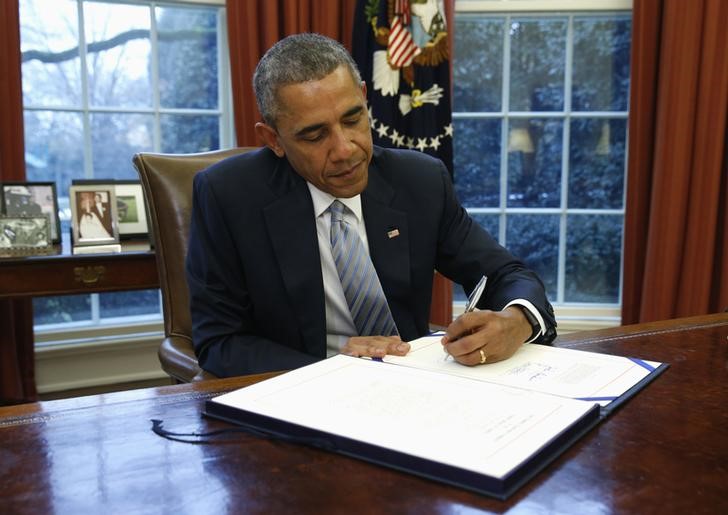Investing.com’s stocks of the week
By Kathy Finn
NEW ORLEANS (Reuters) - U.S. appeals court judges on Friday appeared divided as they considered President Barack Obama's effort to shield more than 4 million illegal immigrants from deportation, a policy put on hold by a lower court as a presidential overreach.
A three-judge panel of the 5th U.S. Circuit Court of Appeals heard arguments in the Obama administration's appeal of the lower court ruling. Two of the three judges expressed skepticism about the government's arguments in defense of Obama's executive actions on immigration, announced last November.
The same court in May rebuffed the administration by declining to overturn the federal district judge's February injunction that temporarily blocked Obama's actions.
Officials in Texas and 25 other states sued in December to stop the administration from launching the program, which would give a reprieve from deportation to some parents of U.S. citizens and permanent residents while expanding a 2012 initiative that applies to illegal immigrants who came the United States as children.
Several dozen supporters of Obama's immigration policies waved signs and chanted slogans outside the New Orleans courthouse before the hearing began.
Judges Jerry Smith and Jennifer Walker Elrod, both of whom sat on the panel that upheld the injunction in May, appeared troubled that the program would give benefits to people in the country illegally.
Noting that a work authorization "is a prelude" to obtaining other benefits, Elrod suggested to Obama administration lawyer Benjamin Mizer that insisting the program is only about work permits is "sort of disingenuous."
Smith also pressed the issue. "Here you have this granting (of legal status) to an entire classification that puts them one step ahead for lots of benefits," he said.
Judge Carolyn Dineen King, who was not part of the earlier proceeding, appeared more sympathetic to the administration. Several times she posed pointed questions to Texas Solicitor General Scott Keller about why Texas opposes the action so vehemently.
Mizer told the court that Texas had incorrectly focused on the granting of driver's licenses and benefits such as Social Security and the earned income tax credit to illegal aliens.
"It's remarkable that the entire policy is being enjoined on the mere policy of driver's licenses," Mizer said.
For Texas, Keller argued that a federal policy should not be able to override state laws that reserve certain benefits only to those who are lawfully present.
